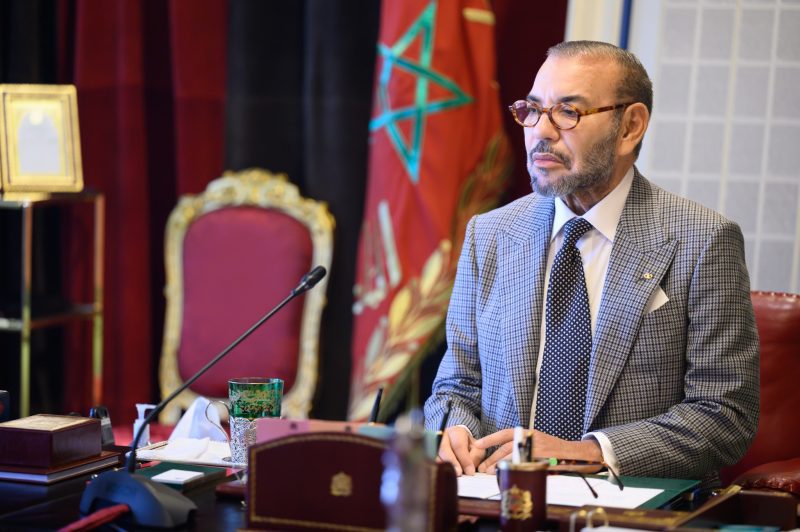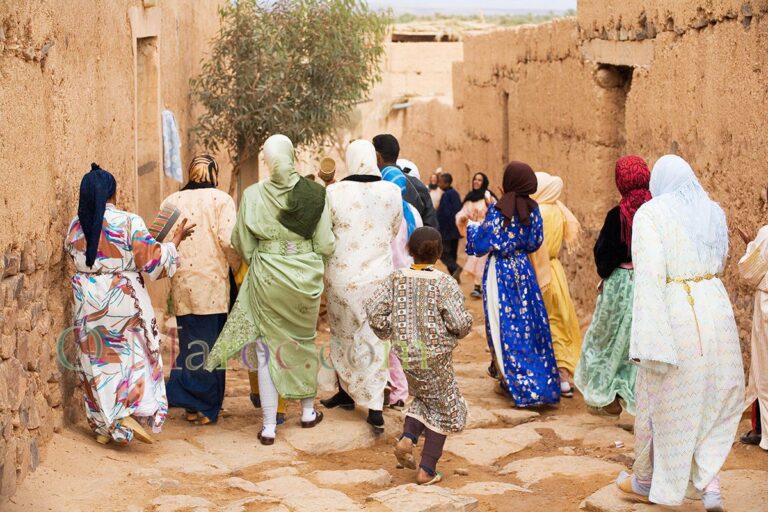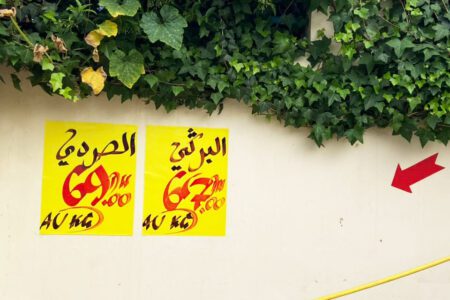When I first arrived in Morocco, the reform of the Family Code, the ‘new Mudawana’, had just been promulgated, and not everyone was happy about it.
“No man will want to marry any more, divorce is too expensive” was the first complaint. However, the main obstacle to marriage today is the economic situation, not the risk of cost in the event of divorce… at least for those who really want to get married, with a view to building a home for life.
Other things made people cringe, and they took a very long time to put in place in a real way, such as the ban on marriages by fatiha (without going before the adul or going through the family court procedure), which for many years we agreed to regularise, before putting a definitive stop to it in 2019.
Above all, there will be easier possibilities for women to request a divorce without losing their rights, which are normally very limited in Islam. In the event of disagreement, she is repudiated but does not leave…
Or the obligation for a husband wishing to take a second wife to obtain the agreement of the first wife before a judge, whereas he used to be able to marry as he wished, without warning…
Or the theoretical ban on marriage for minors, despite the fact that in recent years the number of such marriages authorised by dispensation has risen again.
As you can see, we were talking mainly about marriage.
But this “new Mudawana” was also innovative in other areas.
A very progressive family code
Non-Muslim Westerners (and even those who are Muslims and have never lived in an Arab country) do not realise what the fate of a ‘fatherless child‘ was, whether the result of consensual extramarital relations or, in the vast majority of cases, the result of rape.
Fatherless simply meant without identity. This is still the case in Egypt where these children, even as adults, have no legal existence, no identity card. So they can’t get a driving licence or own property.
Giving these children a legal existence, giving them Moroccan nationality, allowing the mother to pass on Moroccan nationality to her children in all cases, even those born to a foreign father in a legal marriage, was a major innovation.
And if we immediately think of the fate of abandoned children, we should not forget that this also enabled children of mixed marriages to retain their right to inheritance, in particular that of the farmland owned by their mother.
Moroccan society has changed in twenty years
Make no mistake about it, Moroccan society remains traditionalist, opposed in principle to relationships outside marriage (even though they are practised a great deal), and a woman’s role is above all to be a mother and have children, even though she has complete freedom to work and many women have successful careers.
The case of Amina Filali, the young girl who committed suicide so as not to have to marry her rapist, was a turning point that led to the abolition of the despicable article 475. Yet even today, the criminalisation of extramarital relationships prevents many sexual offenders from being prosecuted, as women refuse to risk prison in addition to rape.
And the Moroccan government is taking small, cautious steps towards decriminalising sexual relations outside marriage, without going as far as legalisation. In other words, fines but no prison. The first step has been taken by a PJD justice minister: unless there is an explicit complaint, the police no longer have the right to enter a private home to establish “fornication”.
The legal reforms expected by/for women
Nevertheless, not everything is perfect, far from it. There are still some very important demands, some of which I think will be much more difficult than others: anything that is open to interpretation can be reinterpreted, but when it is written in black and white in the Quran, it is more difficult.
After all, it was already written in the preamble to the 2003 Family Code:
without ever authorising what has been forbidden, nor forbidding what has been authorised.
Polygamy is a good example: impossible to ban, it has been made much more difficult.
Inheritance reform
The basis of inheritance law is clearly set out in the Qur’an
The laws on inheritance are complex, but to sum up we can say that the share of daughters is half that of sons, and in some cases even daughters can see their parents’ inheritance go to their uncles.
This part of the Mudawana contains 118 articles, out of a total of 400.
The laws on inheritance are defined in the Quran, in verses 11, 12 and 75 of the 4th Sura An-Nisa (Women).
This is what God enjoins on you concerning your children: to the son, a share equivalent to that of two daughters.
At the time, this was a positive reform in favour of women, who were totally excluded from inheritance in some parts of pre-Islamic Arabia (as they were until colonisation in Kabylia, despite Muslim law).
Inheritance law not adapted to the modern context
This distribution of the inheritance is accompanied by an obligation for the male heirs: to take care of the women in the family in case of need (their mother, their father’s other wives, their sisters who are single, widowed or divorced):
- in Quranic times, families – and therefore the burden on men – were much larger than today, when the single-nuclear family with one to three children is becoming the norm
- women who do not need this support “lose” half the inheritance, and this contributes, overall, to keeping Moroccan women in a much less favourable economic situation than men;
- it is not always applied today (to put it mildly).
“Not always’ does not mean ‘never’.
A friend of mine lost her father a few years ago. The inheritance was divided according to the law between her, her divorced sister with a young daughter, her mother and her brother. The brother takes care of the whole family, including the little girl. My friend works and he refuses to let her contribute even one dirham towards the costs of the house; everything she earns is just for herself, her pleasures and her savings.
Overall, in a way of life where women work and are independent, this inheritance law, which corresponds to the way of life of the Middle Ages, poses many problems and a large minority of Moroccan women and even Moroccans are calling for its reform: 36% in 2022.
But how do you “forbid what is written“?
Reform of parental authority
Did you know that? In the event of divorce, even when the mother has custody of the children, it is the father who retains sole parental authority.
This means that the wife cannot travel abroad without written authorisation from her husband, less than three months old. The father can forbid the mother to move to another town with the children. He can decide everything, even which schools the children attend.
And he keeps the family record book.
You can imagine the difficulties this can cause when a divorce goes wrong…
Parental custody reform
The problem here is maintaining custody of the child initially entrusted to the mother when she remarries. In fact, in Islam, a child should not be brought up by a man other than his father, when the latter is alive and “capable” …. in other words when he cannot be the subject of a kafala.
This amounts to condemning divorced women to celibacy.
The right to abortion
The “subtle difference” here is the definition of the moment when the foetus is endowed with a soul and therefore becomes a human being who cannot be killed.
For the Maliki (i.e. the Moroccan religious authorities), the foetus is a human being from the moment of conception. For other schools of interpretation, such as the Hanbalites (the majority in Arabia in particular) or the Hanafites (Turkey and the former Ottoman Empire), abortion is possible up to 120 days. Not advisable, but not forbidden (mekrouh but not haram).
In Morocco, the Moroccan Penal Code authorises abortion when a doctor or surgeon considers that the health of the mother is in danger, and with the authorisation of the spouse (article 453). For any abortion or attempted abortion outside this framework (articles 449-452; 454-458). Speeches or writings that incite abortion are also punishable by prison sentences (Article 455).
The situation in Morocco is similar to that in all countries where abortion is banned: it is carried out clandestinely, which puts the lives of women at risk, especially those who cannot afford to go to good clinics or to have an abortion abroad.
The number of clandestine abortions in Morocco is estimated at 80,000 a year, a figure that has fallen sharply thanks to the spread of contraceptive methods (which are not banned).
Several bills have been tabled, proposing in particular to take account of the danger to the foetus and not just to the life of the mother, and to extend the right to abortion to women with mental disorders or pregnancies resulting from rape or incest. None were successful.
Reform of the Mudawana has been launched
A step-by-step change over the last few years
The reform of the “new” Mudawana is one of the major objectives for 2023. The King mentioned it for the first time in his annual Speech from the Throne on 30 July 2022.

In it, Mohammed VI talks about equality, more equality and above all the abrogation of the Quranic concept of qiwâmah, which could be summarised as “equality in difference” or “to each his rights and responsibilities”, based on verse 34 of the same Sura 7 An-Nisa.
Here are two translations, to show you the wide range of possible interpretations:
Traditional version
Men have authority over women because of the favours that God grants them over their wives, and also because of the expenditure they make of their property. Virtuous women are obedient (to their husbands), and protect what needs to be protected, during the absence of their husbands, with the protection of God. And as for those whose disobedience you fear, exhort them, keep away from them in their beds and strike them. If they manage to obey you, then seek no further way against them, for God is indeed High and Great!
Modernist version
Men take responsibility for women in proportion to what God has favoured one over the other, and in proportion to what they spend from their possessions. Virtuous women are devout, guardians of secrecy, because of what God guards. As for those whose hostility you fear, exhort them, make a separate bed, keep away from them. If they obey you, then seek no recourse against them. God is Most High, Great.
This speech in July 2022 came after many years of work with associations, and after already important reforms such as the possibility for women to become aduls.
October 2023: the King launches the reform process
In a letter to the government, it states, among other things, that :
The updating of the Code that we are calling for must be carried out in accordance with the guiding principles and key directions that presided over its development and that we defined in our speech to Parliament on 10 October 2003, then confirmed in the Speech from the Throne addressed to our beloved people on 30 July 2022.
It stresses the need for this reform to
be carried out in full accordance with the spirit of the Sharia and the specific characteristics of Moroccan society [Malekite interpretation] […] using an approach marked by moderation, open Ijtihad, consultation and dialogue.
The priorities are
- remedy the shortcomings that the judicial application of the Code has revealed over nearly twenty years
- amend provisions that have become obsolete as a result of changes in Moroccan society and the development of national legislation.
The basis for this reform must be
the values of justice, equality, solidarity and coherence as advocated in the authentic sources of the Muslim religion, as well as the universal principles set out in the international conventions ratified by Morocco.
Given its complex nature and importance, and the need for a “virtuous practice of constructive Ijtihad“, it will involve, in addition to the government, other religious and civil bodies, such as the Supreme Council of Ulemas, the National Council for Human Rights and the government authority responsible for solidarity, social integration and the family, as well as a wide range of civil society organisations and players.
The results of this work are expected by March 2024 at the latest, and will then be submitted to Parliament.
Mohammed VI, a feminist king
You can’t force a traditionalist, conservative society like Morocco to evolve faster than it wants to. The family is one of the essential structural components here, an essential allegiance even if it does not appear in the motto “Allah, Al Malik, Al Watan” (God, the King, the Kingdom) to which everyone should add al aîla, the family.
As a friend who liveson the other side of the Mediterranean recently told me, “it’s not great in Morocco for women”. That’s true, but it’s getting better all the time. When I compare it to when I first arrived in Morocco, so many things have changed.
By taking small steps, we’ve been able to make progress little by little, rather than imposing sudden reforms.
Changes that do not depend on legislation
Not all inequalities can be reduced by law, but the law is a necessary first step.
In Morocco, as elsewhere in the world, women are the first victims of economic crises. They are poorer, less educated and more affected by unemployment than men.
Their access to education is, in spite of everything, more restricted, because they have less freedom than male students, and their families are reluctant to send them to study “in the city” to go to high school or university, and will only do so if they have a family to take them in, whereas a boy will have more freedom.
For a long time, many Moroccan women will continue to “not marry very well” to avoid remaining spinsters, to satisfy their parents who want to see them married, will not divorce to avoid shame and stigmatisation, to avoid finding themselves destitute and because they think it is better for their child.
Being able to benefit from the advice of an adul or a lawyer, having examples and role models of women who manage to reconcile the life of a modern woman with the requirements of their religion and the expectations of society, and knowing that they can be protected are essential steps without which their situation will not progress.
Some analyses of discrimination against women in Morocco (in French)
- Document. The full text of the royal letter on the reform of the Mudawana
- The full text of the letter sent by His Majesty Mohammed VI to the government, extracts of which are given in the article.
- The concept of the Qiwâmah from the point of view of religious reference and societal changes in Morocco.
- You can download the summary report from this link. Published in 2018 by "UN Women Morocco
- An attempt to estimate the prevalence of induced abortion in Morocco. Comparative approach
- How many abortions are there in Morocco? How do you quantify a banned practice? This article gives several methods and arrives at some figures.
- A half inherited
- Analysis of inheritance laws in Algeria and Morocco
- Morocco: Criminalising relationships outside marriage hinders access to justice for victims of violence
- "articles 490-493 of the Criminal Code not only prevent victims of violence from reporting them, but also enable, facilitate, authorise and encourage violence against women".
 A typo or syntax error? You can select the text and hit Ctrl+Enter to send us a message. Thank you! If this post interested you, maybe you can also leave a comment. We'd love to exchange with you !
A typo or syntax error? You can select the text and hit Ctrl+Enter to send us a message. Thank you! If this post interested you, maybe you can also leave a comment. We'd love to exchange with you !




